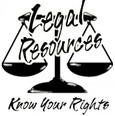
While many people talk about the glitz and glamour of real estate, joining the company of your choice once you past your State Exam can be cumbersome and shocking if you do not know what to do along with knowing what your start up costs will be.
Once you overcome the joy of passing your State Exam its time to find a company to hang your license. Just remember you must apply for a license within 2 years of passing the examination. If not, you will be an unsuccessful candidate and be required to retake the examination.
Finding that right company that works for you may take some time. Here are a few questions you may want to ask.
- Do you have training for agents that are new? If so what does it include?
- What types of systems do you have to help me become successful?
- Are there any fees I have to pay once I join your company?
So you have finally found a company you like and decide to hang your license with them. Here are some of the costs involved once you join.
Before you can practice real estate an application must be submitted to DCCA for approval. This can take anywhere from a week to a month.
DCCA license:
$255 if applying in an odd-numbered year
$185 if applying in an even-numbered year.
Any real estate company you join that is members of Hawaii Association of Realtors (HAR) and the Honolulu Board of Realtors (HBR), will require you to become a member. There are two fees that come with this.
Membership fees to HBR
Multiple Listing Fee more commonly known as MLS
These fees can be upwards of $1000 depending on when you join.
If you want to get yourself up and running other things needed would be Business Cards, Open House Signs, For Sale Signs and Letterhead. Some companies charge E & O Insurance upfront which may be a significant charge.
Plan on budgeting $1500 to $2500 for start up costs and remember if you are being paid by commission your first check may take 2 to 3 months so having reserves of 6 months is optimal.
While real estate can be lucrative it can also be a drain on time and money. Make sure you have a path to success and you will be on your way!









 RSS Feed
RSS Feed